1. It could raise your blood sugar.
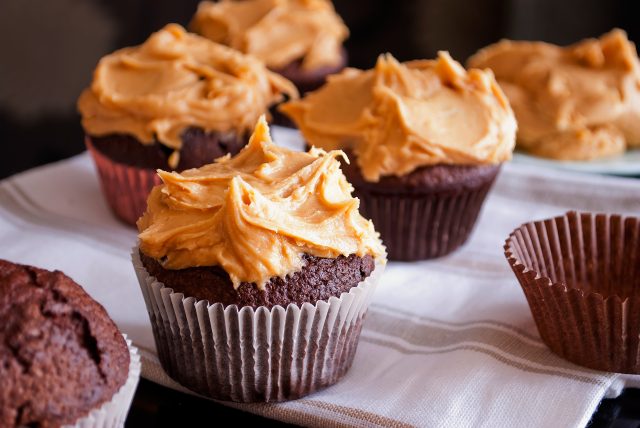
“Some peanut butter varieties, like honey roasted versions, contain a lot of added sugar,” warns Catherine Karnatz, RD, a registered dietitian in Hampton, Virginia. That can raise your blood glucose and may lead to insulin resistance. “Over time, eating too many added sugars may put you at a greater risk for developing type 2 diabetes, and cavities.” Karnatz recommends choosing peanut butter brands that contain less than 5 grams of sugar per serving to keep your blood sugar levels in balance. Natural peanut butter usually contains just two ingredients, peanuts, and salt.
2. Too much may make you nutrient deficient.

“If someone were relying on peanut butter as their primary source of protein and fats, they could miss out on a variety of minerals,” warns Fish. “For example, peanut butter is low in the essential amino acid methionine. Methionine is called “essential” because our bodies don’t make it; we need to get it from food. It’s a building block protein responsible for many functions in the body. But since it’s found only in meat, fish, and dairy products, vegetarians may not get enough. Eating peanut butter wouldn’t provide an adequate amount. Supplement your diet with oats, quinoa, and sunflower seeds, which have higher amounts.
3. It may make you bloated.
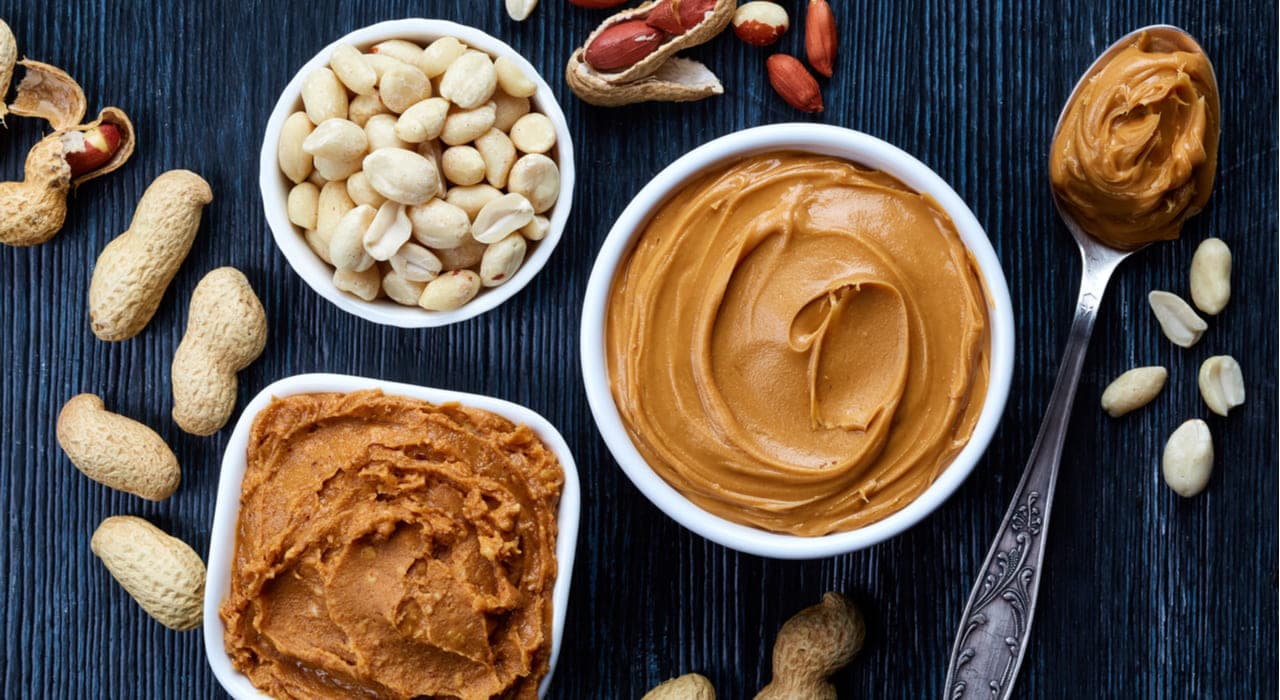
Protein is the most difficult of macronutrients for the body to digest, so overeating it can cause digestive distress, like bloating and gas, says Gomez.
4. You might put on weight.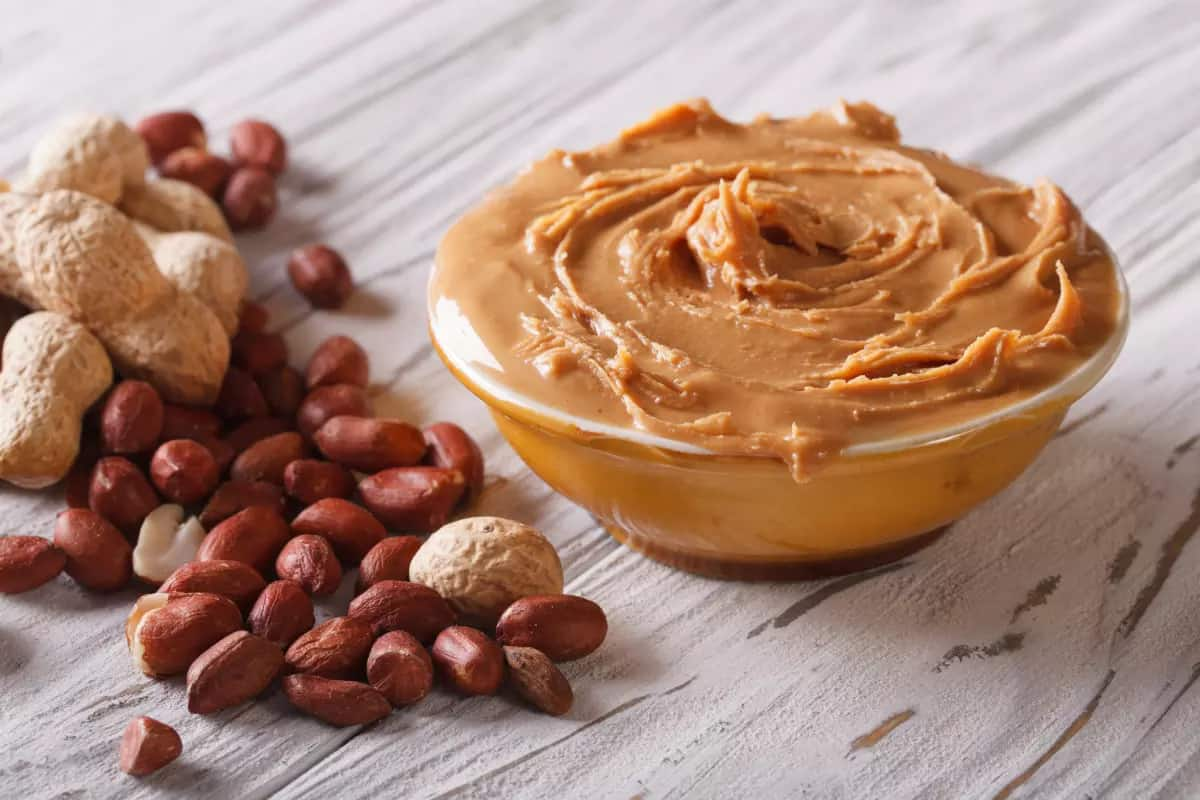
At 200 calories per 2-tablespoon serving, peanut butter is not a low-calorie food, so overeating it on a regular basis is likely to contribute to weight gain, says Margulies. “Don’t assume a ‘low-fat’ peanut butter is healthier,” she says. “The fat in peanut butter is a healthy fat, but when fat is removed, sugar may be added in its place. And some brands also add hydrogenated oils.”
5. You may get more unhealthy additives.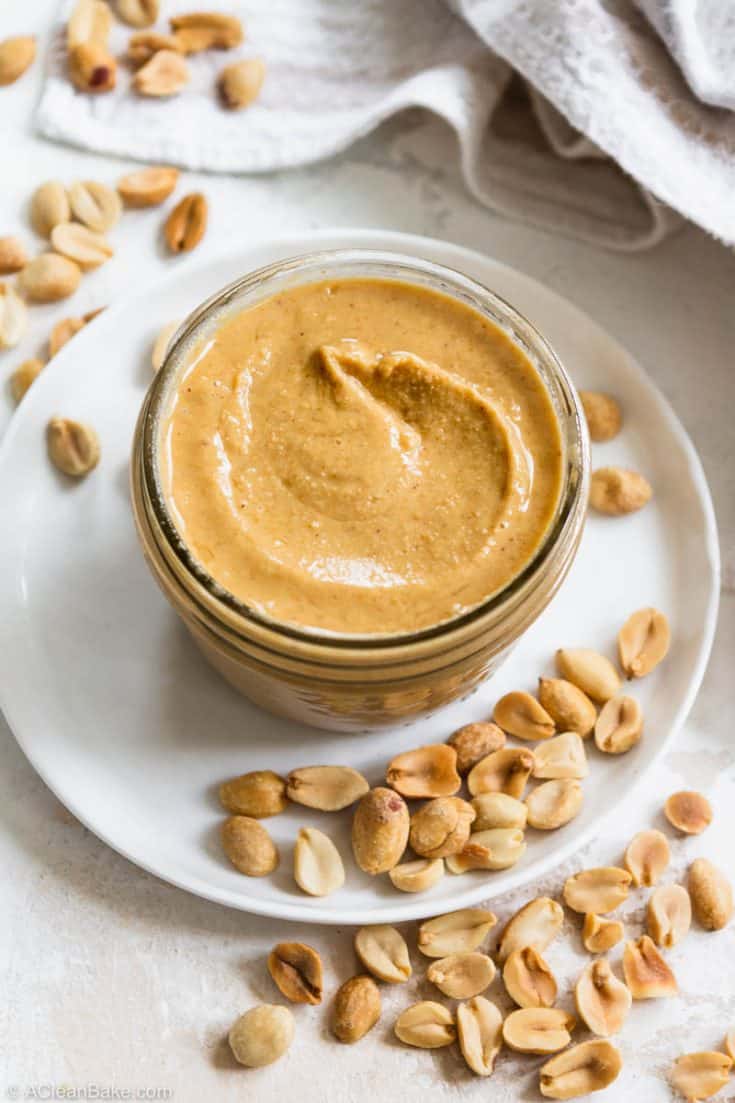
“Not all peanut butter is created equal,” says Trista Best, RD, a registered dietitian at Balance Once Supplements. Even the best brands can contain added sugars and hydrogenated fats and other concerning ingredients, so it’s important to read nutrition labels and scrutinize the ingredients list. Even the name of the product can tip you off. Consider, Jif Natural Creamy Peanut Butter Spread. “The keyword is ‘spread’ because it is not 100% peanut butter,” says Best. “This product is using the word ‘natural’ very loosely, giving the idea that it is the same as creating your own peanut butter with whole nuts.”
Like many other peanut butter products, it contains added sugar, palm oil and molasses. While preferable to trans fats, palm oil contains saturated fatty acids, high amounts of which have been linked to coronary artery disease; added sugars have been shown to increase risk of cardiovascular disease, as well.
6. It could trigger anaphylaxis.
“Peanut butter is generally safe to eat in moderation, but for some people, it can cause allergic reactions,” says Kieran McSorley, RD, chief operating officer of Brentwood Physio Calgary. The reaction can be mild or severe, called anaphylaxis, and cause the person to have difficulty breathing.
7. There’s a small risk of potential exposure to mold contamination.
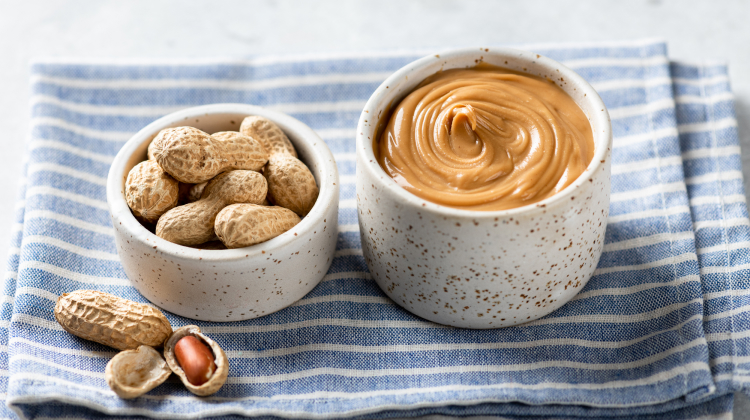
A fungus called aflatoxin often grows on crops like peanuts during storage and processing in most parts of the world. Consuming peanut butter contaminated with this mold could cause liver damage, including liver cancer and liver failure, as it has in places like Kenya. “However, this is generally not a concern in the United States,” says Kovalenko. “Regulations and quality control measures are in place to prevent such contamination.”
Source: https://www.eatthis.com








